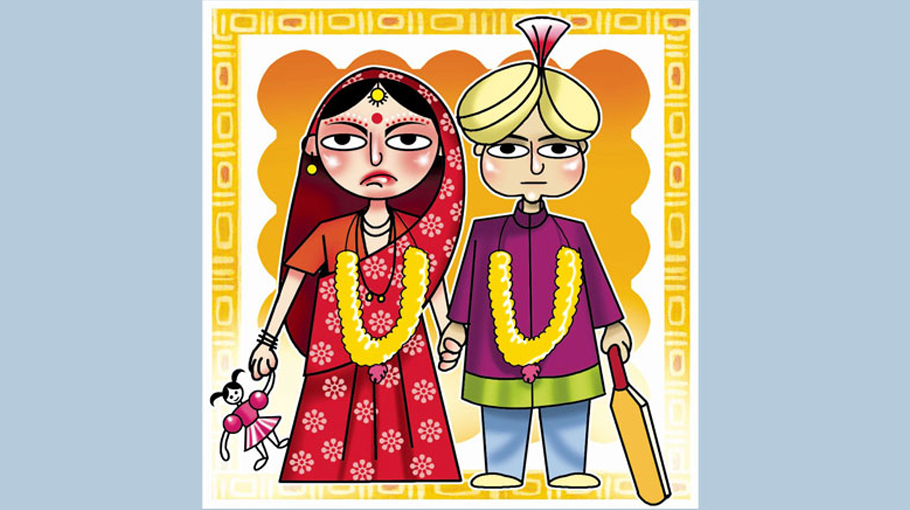Steps to check early marriage stressed
33pc girls get married before 15, 58pc before 18

Expressing concerns that over 33 percent girls in Bangladesh are getting married before 15 and 58 percent before 18, while 60 percent are becoming mothers by the age of 19, speakers at a meeting on Wednesday underscored the need for effective steps for implementation of the law to check early child marriage.
While the incidence of child marriage has decreased worldwide, it has increased in Bangladesh and the country stands the fourth in child marriage prevalence after three of backward African countries. Almost 85 percent of the marriages took place due to the parents' concern about their daughters' future, while 71 percent occurred due to the school closure.
Incidin Bangladesh in collaboration with Save the Children organized the meeting with Executive Director of Incidin Bangladesh A. K. M. Masud Ali in the chair.
M Aminul Islam, former national convener of SAIVAC and joint secretary spoke as the chief guest. Advocate Salma Ali, Chairperson, BNWCA, A.K.M Mustaque Ali, Executive Director, Incidin Bangladesh, Shamsun Nahar, additional director, DSW, Dr. Md. Mustafizur Rahman, joint inspector general, DIFE, spoke as special guests.
In a keynote presentation, A. K. M. Masud Ali said, despite enactment of Child Mrriage Restraint Act 2017, the rate of marriage of under-aged girls is alarmingly high in Bangladesh and also suggested for reiterating the cognizable, non-bailable and non-compoundable nature of the offense.
Besides, setting up Child Marriage Prevention Committee, strengthening the powers of government officials, and increasing penalties for under aged are very important for ensuring execution of the law for effectively checking marriage of under-aged marriage, he mentioned.
In order to stop early child marriage, he suggested for regular awareness campaign for educating and encouraging people on no marriage before marriage age, initiating poverty alleviation and social safety net for alternative livelihood through skills development.
Low income of the parents or guardians unable to run their families is responsible for 61 percent of the marriages, while returnees from abroad during the virus epidemic topped the list of grooms preferred by 62 percent of the families marrying their children off, he pointed out referring to recent study.
"Some of the parents think that the lingering coronavirus epidemic will increase economic uncertainty, leaving them unable to feed their children,” he quoted a survey report.
As a move for way forward for effectively checking child marriage, he suggested for deepening understanding and expanding data on urban context of child marriage across marginalized communities and children.
He also emphasized on acknowledging children without parental care as a common reality in urban context of marginalization and vulnerability by ensuring inclusion of these children in urban safety-net program.
Besides, expanding Child Welfare Board’s coverage at urban centers and ensuring portable social safety-net for migrating adults and children as well as their families can play effective role, he mentioned.




